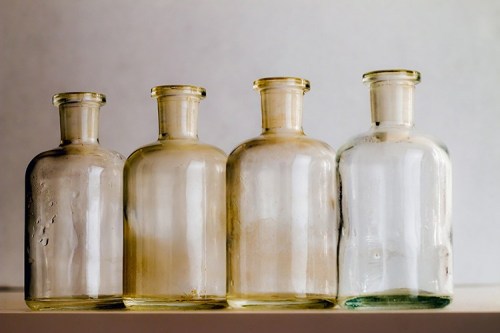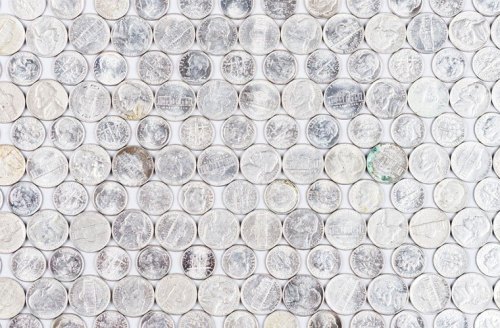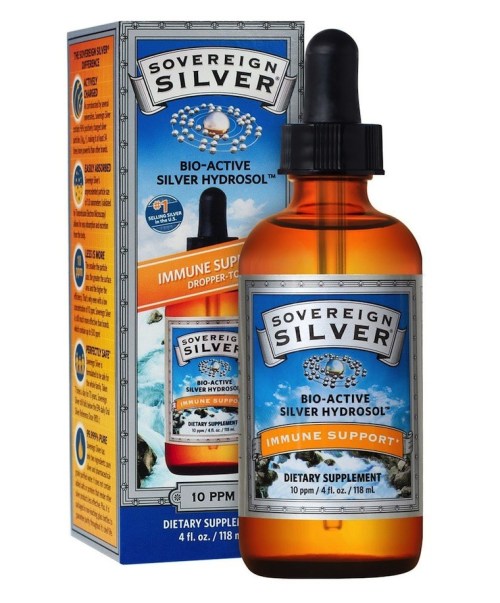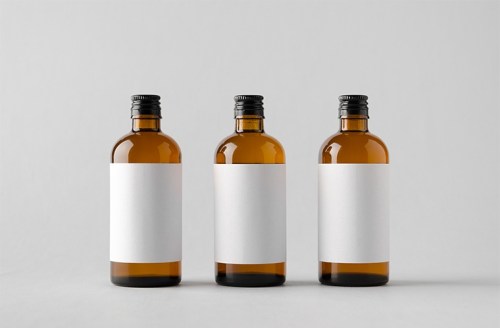Why colloidal silver is the buzzy cure-all of the moment
The centuries-old anti-inflammatory supplement has all sorts of immunity and beauty benefits, from fighting off colds to pimples.

In the world of alternative healing solutions, colloidal silver has been beloved for centuries. Fans rave that it’s a natural do-it-all antibiotic supplement that can clean wounds, boost immunity, and spot-treat blemishes.
But lately, it’s become more de rigueur in the wellness circles than a rose gold juicer. Need proof? Look no further than holistic trendsetter Gwyneth Paltrow, who spritzes it on airplane seats to kill germs.
Yes, “it’s actually real silver,” explains colloidal silver mega-fan Ildi Pekar. The Hungary-born, New York City-based facialist to celebs like Miranda Kerr and Lindsay Ellingson has a long history with the so-called cure-all; she grew up making it from scratch.
The process, Pekar explains, is not as crazy as you’d expect: Using electrolysis, tiny silver particles are suspended in liquid—and the resulting solution creates an environment in which bacteria can’t grow. (Hence why thousands of years ago, people reportedly put silver coins in water to help keep bacteria and algae at bay.)
Yet doctors tend to be skeptical of its antibacterial powers, and it hasn’t exactly hit the mainstream. Should you be adding it to your wellness arsenal—or giving it the side-eye?
Here’s everything you need to know about colloidal silver.

The potential benefits
Fans of colloidal silver say it’s a real power player when it comes to the antis: “It’s a natural antibiotic, anti-inflammatory, and anti-fungal,” Pekar says. “You can turn to it when you’re sick or have any inflammation in your body, whether it’s on the skin or internal.”
This Parisian Skincare Brand Is Launching in the United States for the First Time—Here’s What a Derm Wants You to Know

We’re Calling It: Cleansing Balms Are the Face Wash of the Future—Here Are 3 to Add to Your Cart

This Is the One Product That Scarlett Johansson Always Keeps in Her Purse and on Her Bedside Table

Pekar recommends a drop of the tasteless liquid on your tongue for an immunity boost (most solutions come with a dropper), or one drop in the ear to help with ear infections. “It’s also really good for toothaches, which is essentially inflammation in your gum,” she says—and she uses it on her kids’ cuts and scratches.
Colloidal silver comes with beauty benefits, too, combatting the inflammation that can drive acne and eczema. “You can use it as a spot treatment by putting a few drops on your hand and rubbing on the problem area, or you can add to your moisturizer or serum,” the facialist explains.
But remember: It’s just for flare-ups, not an every day thing. “It works pretty intensely,” she cautions.

What to look for
There are different forms of colloidal silver, so it’s important to make sure anything you buy is labeled “colloidal silver” or “silver colloid.” Beyond that, Pekar says you should look for 50 percent (or more) silver content on the bottle so you get the maximum benefits. And make sure the liquid isn’t clear, which means it’s too diluted to be of any use. “You’re looking for an ionic silver color,” she explains.
Oh, and pass on anything labeled “ionic silver solution” or “silver protein,” Pekar adds. The latter tends to have a super-high concentration of silver (from 500 to 20,000 parts per million), which isn’t ideal for general health and beauty purposes.

Does it really work?
Right now, there aren’t a lot of high-quality studies looking at colloidal silver. Plus, in the past some manufacturers have made outrageous, unsubstantiated claims, saying it cures diabetes and syphilis. (This led the FDA to release a statement in 1999 saying it was “not aware of any substantial scientific evidence that supports the use of OTC colloidal silver ingredients or silver salts for these disease conditions.”) The National Center for Complementary and Integrative Health warns about potential side effects, too (think permanent skin discoloration).
Still, many wellness insiders—from Paltrow to Dr. Josh Axe—tout its effectiveness, so it’s worth talking to your doctor if it piques your interest. And maybe the next time you have a cold, scratch, or pimple, try a drop of the silver solution to see if it shines for you.
Adaptogens also provide a big-time health boost—here’s everything you need to know about these superherbs. Plus, check out these mental health-boosting supplements that everyone should take.







